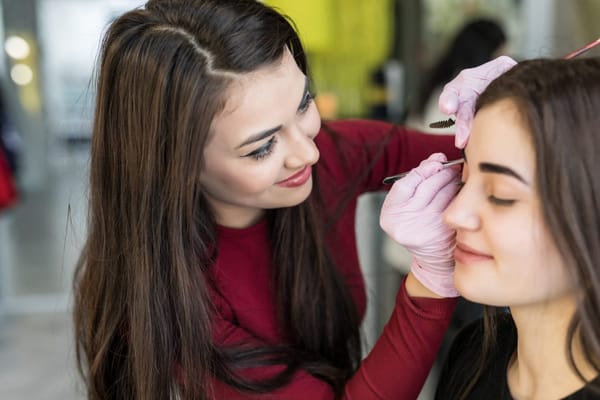Beyond the Brush: Why Human Trafficking Awareness Matters for Texas Cosmetologists

The beauty industry in Texas thrives on connection. As licensed cosmetologists, you’re not just shaping hair and enhancing features; you’re building relationships with your clients, creating a space of trust and often, intimate conversation. But within this close proximity and the diverse clientele you serve lies a sobering reality: the potential to encounter victims of human trafficking. That’s why Texas has made human trafficking awareness an integral part of your cosmetology license renewal – and why it’s a responsibility we should all embrace wholeheartedly.
For many, the image of human trafficking might conjure up images of clandestine operations far removed from our daily lives. However, this heinous crime often hides in plain sight, and the unique position of a cosmetologist can make you a vital frontline in identifying and potentially assisting victims. Think about it: you spend dedicated time with individuals, noticing subtle changes in their demeanor, physical well-being, or the stories they share. You might observe signs of control by another person, inconsistencies in their explanations, or even physical indicators of abuse or neglect.
The Texas Department of Licensing and Regulation (TDLR) understands this potential. By mandating human trafficking awareness training as a condition for license renewal, they are empowering you with the knowledge to recognize these red flags. This isn’t about turning every salon into a law enforcement outpost; it’s about equipping you with the sensitivity and understanding to potentially identify someone in need.
The required training typically covers:
- Understanding the Definition of Human Trafficking: Differentiating between labor and sex trafficking, and recognizing the various forms exploitation can take.
- Identifying Common Red Flags: Learning to spot behavioral cues, physical signs, and circumstantial indicators that might suggest someone is being trafficked.
- Knowing How to Report Suspected Trafficking: Providing clear guidance on who to contact and how to report concerns safely and effectively, without putting yourself or a potential victim at further risk.
- Understanding the Vulnerabilities: Recognizing populations that are often targeted by traffickers.
This training isn't just a box to tick for your renewal; it's an opportunity to become a more informed and responsible professional. By understanding the complexities of human trafficking, you can become a crucial link in the chain of awareness and support. Our cosmetology license renewal course will give you the knowledge needed to make informed decisions if the situation arises. Imagine the impact of a single observation, a carefully placed phone call, that could lead to the rescue and recovery of a trafficking victim.
Beyond the legal requirement, embracing human trafficking awareness reflects a commitment to the well-being of your community. As cosmetologists, you are pillars in your local areas, building connections and fostering trust. By being vigilant and informed, you extend that care beyond the salon chair and contribute to a safer Texas for everyone.
So, as you approach your next license renewal, view the human trafficking awareness training not as an obligation, but as an empowering opportunity. Take the time to truly engage with the material, ask questions, and consider how your unique position can make a difference. By staying informed and aware, you can contribute to the fight against this devastating crime, making your salon not just a place of beauty, but also a potential beacon of hope. Your awareness could be someone's lifeline.
Here's how you can make a difference:
- Trust Your Instincts: If a situation feels wrong, it's worth reporting.
- In an Emergency, Act Fast: CALL 911 immediately if someone is in immediate danger.
- Not an Emergency? Reach out to the National Human Trafficking Hotline:
- Phone: 1-888-373-7888 (TTY: 711)
- Text: "HELP" or "INFO" to 233733
- Website: https://humantraffickinghotline.org/en
- Available around the clock, with multi-language support.
- Be Clear in Your Report: Provide details about what you observed.
- Your Call Matters: Even if your suspicion isn't confirmed, reporting allows authorities to investigate. It's OK to be wrong.
Don't underestimate the power of your observation. Speak up. Your call may save a life.





